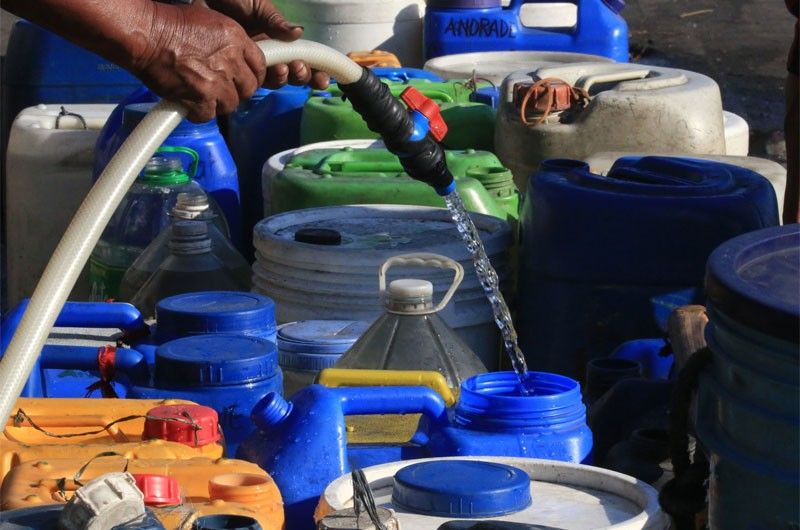An integrative approach to water security

Water affects the everyday lives of Filipinos and the economy as a whole. Moreover, due to factors that influence how we demand and consume resources, the pressure to ensure accessibility to clean, reliable, and affordable water will increase over the coming years.
Filipinos cannot afford to be complacent. Inaction toward water resource management is not an option, so we must focus on the opportunities that lie ahead. This is possible if all sectors leverage each other's strengths and expertise to forge stronger partnerships and collaborations to develop comprehensive, coordinated, and sustainable water management solutions.
For the Philippines, climate change and global warming are just parts of the bigger puzzle we need to consider when talking about water security. Similar megatrends such as population growth and urbanization have intensified the occurrence of socioeconomic and environmental security risks.
These megatrends continue to place immense pressure on our available water resources and existing water systems and infrastructures that are designed with future environments much the same as decades ago.
Population growth is a crucial factor that influences the demand for and utilization of water, primarily in households. As the Philippine population continues to increase, so does the demand for water resources leading to a substantial impact on the communities and public health if not sustainably managed.
The lack of access to clean water and sanitation, especially in urban areas, will lead to increased disease, particularly among the poor and marginalized populations.
Meanwhile, the development of urban areas in the country attracts more people and business operations, thereby promoting economic growth. Rapid urbanization also influences water resource demand and consumption, primarily in industrial activities including the food and manufacturing sectors.
A challenge in providing reliable and affordable water resources leads to a lowering of productivity and yields, leading to food and resource shortages and higher prices of commodities. This, in turn, will lead to higher inflation and greater poverty.
Opportunities amid the challenge
But within these challenges lie opportunities—the opportunity to collaborate, innovate, and act with a sense of urgency and determination.
This is what the speakers and panelists underscored in the recently concluded "Philippine Water Management Agenda: Ensuring Sustainability and Security" forum that was organized by the Stratbase Albert Del Rosario (ADR) Institute, the Philippine Business for Environmental Stewardship (PBEST), and the Department of Environment and Natural Resources (DENR).
DENR Secretary Maria Antonia Yulo-Loyzaga emphasized that comprehensively addressing the water-related challenges facing the country will result in unlocking the potential for transformative changes across all sectors of society, including the most vulnerable. Although the journey toward water security may be daunting, Filipinos’ collective resolve and shared responsibility will guide the country toward success.
Similarly, DENR Undersecretary for Integrated Environmental Science Dr. Carlos “CP” David emphasized that achieving a water-secure future for the Philippines can only happen with concerted effort between the different agencies of the national government and the private sector.
Notably, for a developing economy that is highly influenced by these megatrends, a fundamental development of new and the enhancement of existing infrastructures, policy directions, and systems are required if we are to prevent a future where water scarcity and insecurity become the norms.
The government speakers referred to the national government’s move to establish a centralized and coordinated approach to water management. On April 27, 2023, President Ferdinand “Bongbong” Marcos Jr. signed Executive Order No. 22, establishing the Water Resource Management Office (WRMO).
The main responsibility of the WRMO is to harmonize the government’s efforts and regulatory bodies in ensuring the availability and sustainability of the Philippines’ water resources through the implementation of the Integrated Water Resources Management in line with the United Nations Sustainable Development Goals (SDG).
Such a move is timely and much needed, especially amid the likelihood of water scarcity because of the looming El Niño phenomenon. The lack of a centralized and coordinated approach leads to inadequate collection and sharing of water-related data, making it difficult to make data-driven and informed decisions on water allocation, planning, and monitoring. It also creates bottlenecks in developing evidence-based policies and programs that can address the country's water security challenges effectively.
During the forum, participants also explored the critical role of the private sector in addressing these challenges and the significant contributions they have already made. They have shown their capabilities to drive innovation, mobilize investments and implement sustainable practices.
Additionally, their entrepreneurial approach to challenges and their flexibility enables them to adapt quickly to changing circumstances. They also shared inspiring case studies of successful initiatives that have improved water infrastructure, reduced water losses, and enhanced water quality.
The private sector has, through the years, participated in the Philippine water security agenda by investing in water infrastructure, treatment facilities, and distribution networks. With this, the private sector has proven -- and I am sure they will continue to prove -- that they are not just profit-driven entities but agents of change, committed to the betterment of society and the environment.
The challenges of water security are significant, but so are the opportunities that lie ahead. We must build upon the momentum generated by the discussion of water security and translate them into tangible actions. All stakeholders must do their fair share.
The national government must continue to establish and ensure the proper implementation of a centralized and coordinated approach to water resource management. Likewise, the private sector must continue to anchor their business operations on providing value not only to their customers but also on contributing to sustainability and environmental stewardship.
Eng. Felix M. Vitangcol is the secretary general of the Philippine Business for Environmental Stewardship, a sustainability advocacy supported by think tank Stratbase Group.
- Latest



























